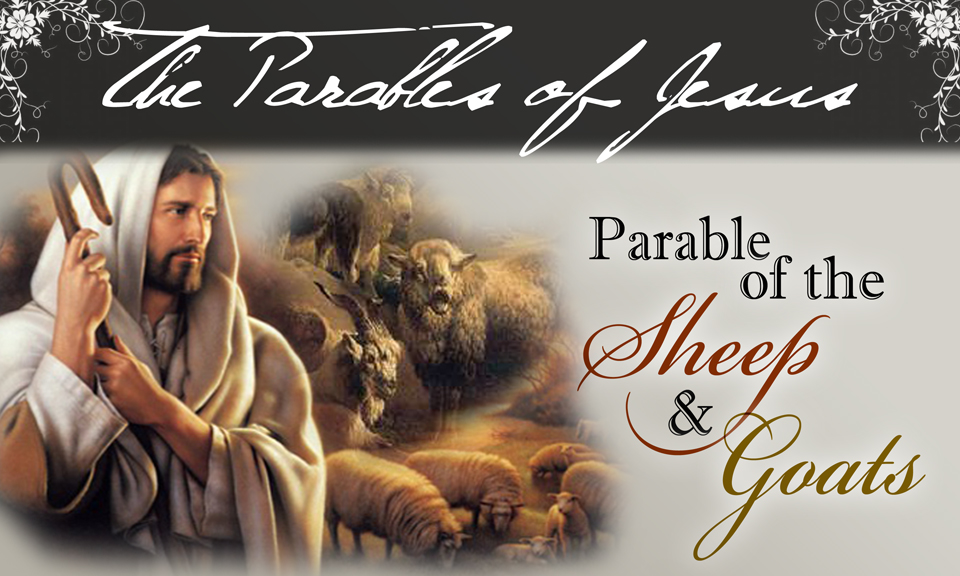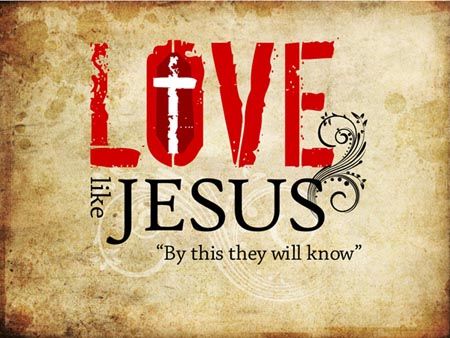
We are all familiar with the Parable of the Sheep and the Goats. Most of the time, we view this parable through the lens of good works. More than good works, however, this parable speaks about inheritance. And when we speak about inheritance, it always comes through the perspective of relationship.
The church of Kajang Assembly of God is currently going through a series of studies on the parables of Christ. Not too long ago, Pr Soo shared a message concerning this specific parable and what it reveals to us about our relationship with Christ.

First of all, in order to understand the context of why Christ used sheep and goats as illustrations, we can look at their characteristics. What differentiates sheep and goats? From their outer appearance, they do not look very much different. This means that it is their nature that is of relevance.
Sheeps are docile creatures, gentle and submissive to the shepherd’s call. Goats on the other hand are unruly, headstrong, and aggressive. In this very comparison itself, we see a matter of the heart; a faithfulness and devotion that is opposed to that of a rebellious nature. God yearns for an intimate relationship with us.
In the parable we read of how Christ separated the crowd; the sheep to the right and the goats to the left. Pr Soo shared that this is not a mere matter of phrasing. It has echoes from the Book of Genesis itself.
In Genesis 48:8-20, we read of how Jacob blessed Joseph’s sons, Manasseh and Ephraim, with his inheritance. Though Manasseh was the firstborn, the hand that was placed by Jacob on him was that of his left hand. Though Ephraim was the younger son, he received the major part of the inheritance. This position of right and left has major significance.

Pr Soo reminded that the judgement of the nations is a reality. It will come at the end of all days after the tribulation. It is inevitable and it is recorded that even in those days men will not avoid evil and wickedness.
In that great judgement Christ will sit on His throne of judgement and He will separate the crowd; some to the right as righteous men redeemed and saved and others to the left as unrighteous men condemned and lost. Christ will be sovereign and salvation will come from Him and His grace alone, not through our merit or good works.
If Christ is thus the sovereign decision-maker, where does good works come in? Pr Soo offers here a few points to ponder on. Foremost, the good works mentioned here is not the cause of salvation but the effect of salvation.
Being a Christian springs forth from the meaning of becoming like Christ. 2 Corinthians 3:18 exhorts us to be transformed by the Spirit of the Lord from glory to glory so as to become like the image of Christ that we behold as from a mirror.
Good works in a Christian’s life are the direct outflow of the traits that come as we mature in Christ. They are only acceptable to God because of the relationship that exists between Master and servant, the Saviour and the saved, the Shepherd and the sheep.

What then are good works? It is the fruit of the Spirit; love, joy, peace, forbearance, kindness, goodness, faithfulness, gentleness, and self-control. The Bible tells us that against such there is no law or judgement. Those who are in Christ have crucified the flesh with its passions and desires. Galatians 5:22 exhorts us that since we are now living in the Spirit, let us therefore walk in keeping with the Spirit.
Good works will result from our relationship with the Shepherd and we will carry His love, therefore loving others around us. Followers of Christ will treat others with kindness, serving them as if they were serving Christ Himself. Gone are the carnal reasons for doing good works such as to derive esteem or from mere superstitious beliefs that good works will chase away demons or atone for past wicked deeds.

How do we develop these traits and become ‘sheeps’ instead of ‘goats’? Begin with a relationship with God that enables us to serve Him. Mother Teresa once said that the greatest gift God has given to her was the poor that she served. She said it was like being 24 hours with Jesus:
“I see Jesus in every human being. I say to myself, this is hungry Jesus, I must feed him. This is sick Jesus. This one has leprosy or gangrene; I must wash him and tend to him. I serve because I love Jesus.”
When we do our good works therefore, let us do them with a renewed mindset; as an act of honour and worship unto God, originating from a relationship that we have now found with Him. We cannot serve God without a relationship with Him.When we serve, let us serve with joy and out of love for Him. We are strengthened daily by Him; made new every day. In the end, this is what it means to be a child of God.
NOTE: This is an adaptation of a message shared by Pr Soo at Kajang Assembly of God, written through the personal impartation received by the writer. It has not been vetted by Pr Soo or the church.
|Share The Good News|
Jason Law




Leave a Reply